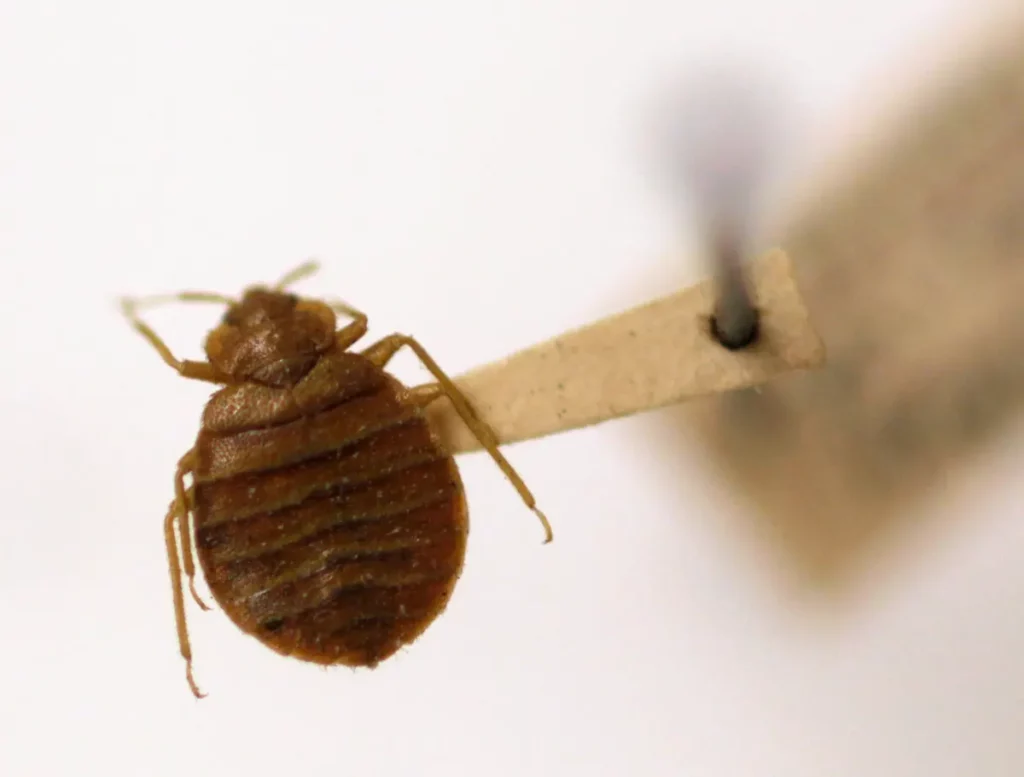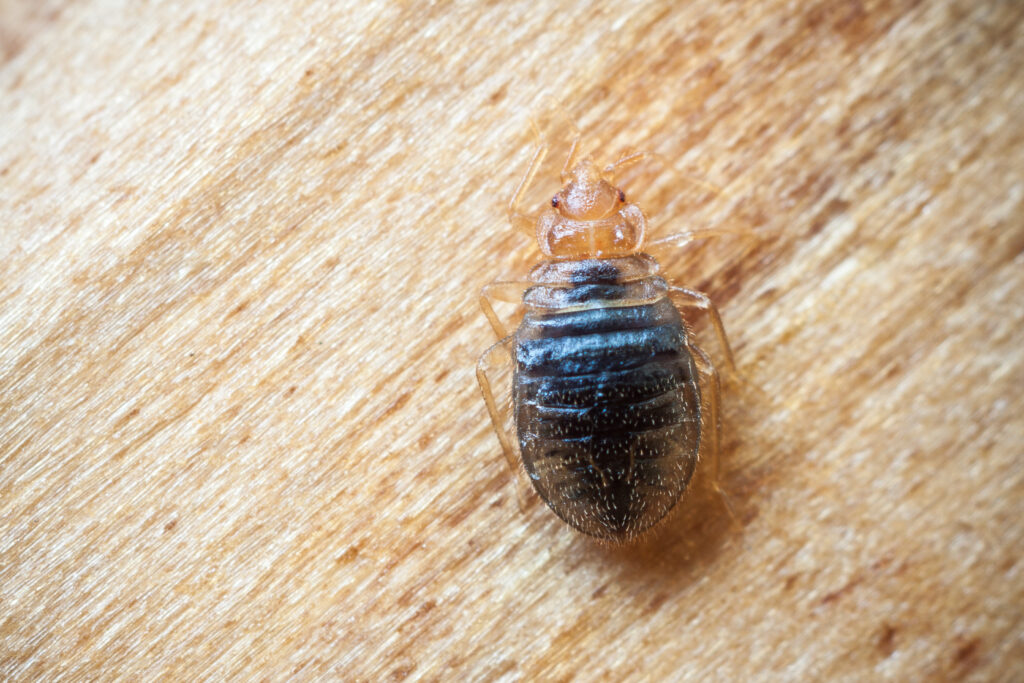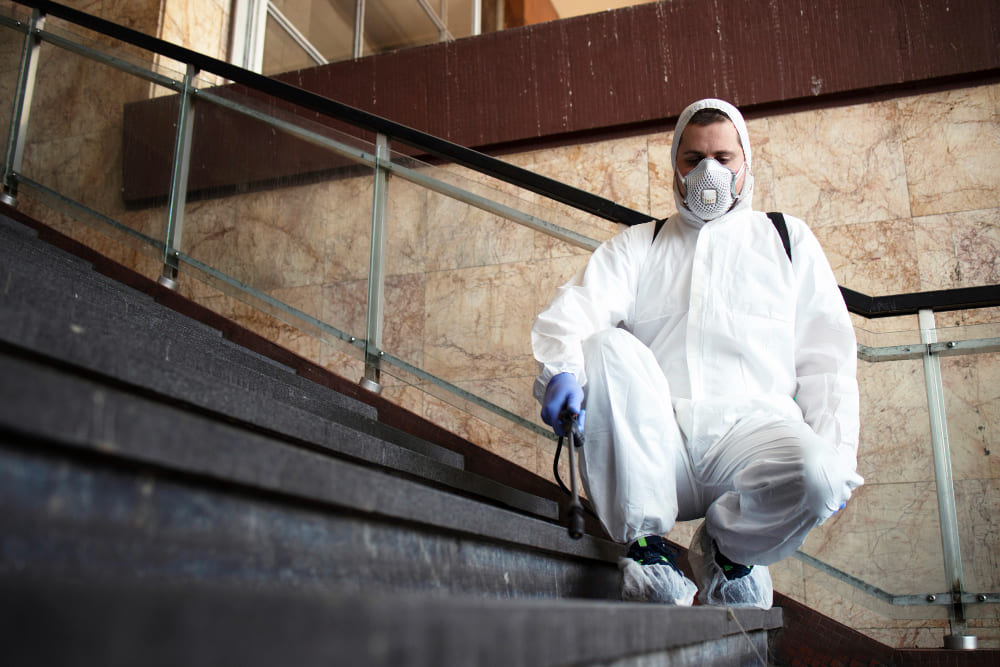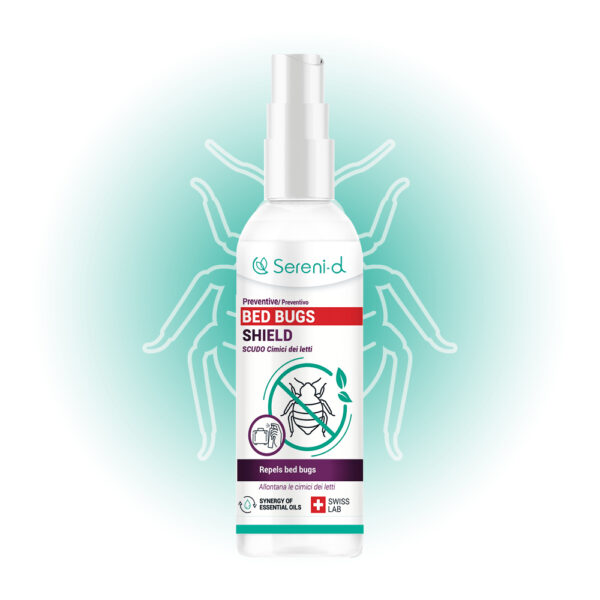Public transport, hotels, schools, etc. Bed bugs are increasingly finding their way into public spaces. The risk of these pests appearing in your workplace is therefore very real. In the event of an infestation, many questions arise for both employees and employers. Liability, the possibility of teleworking, what the law says, measures to be taken: here is everything you need to know if bed bugs are present on your company’s premises.
Key information
➡️ Employers have a legal obligation to protect the physical and mental health of their employees and must act quickly in the event of a bed bug infestation.
➡️ Teleworking may be implemented by mutual agreement if the premises are infested, but it is not an automatic right. It cannot be imposed by either the employee or the employer.
➡️ The right to withdraw from work only applies if no protective measures have been taken and the danger is proven.
➡️ An employee who has bedbugs at home can continue to work, provided they take simple preventive measures (clean clothing, sealed bags, isolated storage).
➡️ Prevention is essential, both for employees (daily checklist) and for employers (awareness-raising, lockers, cleaning, steam treatment or detection dogs).
Bed bugs in the workplace: employer responsibility
These insects, which usually nest in bedding, mattresses or bed bases, can also settle in offices, break rooms and other areas of your workplace. Their appearance in a workplace creates a legal obligation for the employer.
👉 The Labour Code (Art. L. 4121-1) states: the employer must take all necessary measures to ensure the safety and protect the physical and mental health of their employees.
Bed bugs are considered by the Department of Health to be a physical and mental hazard. In addition to bites and itching, which can cause allergic reactions, these pests can also be a source of stress and anxiety for employees (see our article on the psychological risks associated with bed bugs).
Therefore, in the event of an infestation, the employer must take the necessary measures:
- have a specialist company carry out an accurate diagnosis,
- implement appropriate treatment to eliminate bedbugs, eggs and larvae,
- provide appropriate equipment such as gloves to prevent bites
- inform and reassure employees about the steps taken,
- limit the possible spread to employees’ private homes.
Bed bugs and teleworking: current regulations

Can an employee request to work from home if their workplace is infested with bed bugs?
When an infestation of bed bugs is confirmed in the workplace, the question of teleworking immediately arises. Employees may legitimately fear being bitten at work or bringing these pests home with them.
It is therefore necessary to consult the existing terms and conditions for teleworking in the collective agreement or company charter.
If nothing has been planned, employers and employees may agree to resort to teleworking by mutual consent. This temporary solution is ideal for limiting the spread and dealing with the infestation.
Without causing panic, it is worth remembering that bedbugs can easily travel from one place to another in bags, clothing, textiles (such as car seats or armchairs) and other objects..
Can an employee require their employer to allow them to work from home in the event of an infestation?
No, working from home is not an automatic right, but it can be negotiated between the employer and the employee.
Can an employer require an employee whose home is infested to work from home?
The answer has not yet been legally decided. However, bed bug infestation can legitimately be considered an exceptional circumstance requiring employees to work from home. In practice, professional treatment requires the premises to be evacuated and therefore does not allow the company to continue its activities on site..


Does the right of withdrawal apply to bed bugs?
The right of withdrawal allows an employee to leave their post or refuse to work if they believe they are exposed to a serious and imminent danger to their health or safety (Article L.4131-1 of the Labour Code). This provision is often invoked for risks related to machinery, chemicals or dangerous working conditions.
Can this right of withdrawal be exercised for bed bugs?
According to case law, there are two possible scenarios :
- Right of withdrawal possible if no measures have been taken by your employer and you have multiple bites or allergic reactions.
- Right of withdrawal not applicable if the employer has implemented protective measures..
Working from home, if possible, remains a good compromise.
Can I go to work if I have bed bugs at home?
Discovering bed bugs in your home is stressful enough… so the idea of carrying them to your workplace can quickly become distressing..
Does this mean we should isolate ourselves and stop going to the office? The answer is no. It is important to remember that bed bugs do not transmit any diseases..
You can continue working, provided you take a few simple precautions:
- Change your clothes before leaving: wear clean clothes that have been washed at 60°C or tumble dried on a hot setting.
- Use an airtight bag to carry your essential items.
- Avoid bulky items (coats, blankets, scarves) that provide more hiding places for bed bugs.
- Store your belongings separately at the office (in locked lockers or sealed bags).
See also: Causes of bed bug infestations.


Can an employee request sick leave in the event of an infestation of bed bugs?
Yes, if you have bed bugs in your home, you can request sick leave from your doctor in the following cases:
- Severe skin reactions: severe itching, allergies, infections following bed bug bites.
- Sleep disorders caused by anxiety and night-time bites, leading to extreme fatigue.
- Recognised psychological impact: stress, anxiety or symptoms similar to post-traumatic stress disorder, already documented in medical studies.
However, the mere fact that their office or workplace is infested does not justify taking time off work. Employees must consult their doctor, who will assess whether their state of health requires rest or appropriate treatment..
What treatments are available for bed bugs in a business?
When an infestation is detected in business premises (offices, meeting rooms, etc.), it is essential to act quickly. Bed bugs can easily move from one place to another via employees’ personal belongings, pipes, electrical sockets, etc. Within a few weeks, an entire building can be infested.
First and foremost, it is necessary to confirm that it is indeed a bed bug infestation and, if so, determine its stage of development in order to propose the appropriate protocol..
It is advisable to call in a professional with a sniffer dog. Canine detection is a 95% reliable method..
You must then call in a certified professional who offers two types of treatment..
Heat treatments
High temperatures or cold temperatures are effective against bed bugs.
In practice, professionals use dry steam cleaners (minimum 120°C) which kill insects and eggs immediately.
To treat large volumes quickly, a heat chamber such as the BegBuster from Nocibilis can also be used. This is a type of container equipped with high-temperature ventilation that kills bedbugs and their eggs in two hours..
Good to know: ANSES recommends using heat treatments rather than insecticides, which are more harmful to health..


2. Chemical treatments
The application of insecticides is sometimes essential in cases of persistent infestation..
Please note that only a Certibiocide-approved pest control operator is authorised to use this type of product.
The products generally have a dual effect:
- Shock effect, which kills bedbugs on immediate contact.
- Residual effect, which acts for several weeks to eliminate insects that hatch afterwards.
For an effective protocol, at least two treatments should be carried out 7 to 10 days apart..
Employees: steps to take to prevent infestation in your workplace
Bed bugs do not differentiate between your bedroom and your office: they are simply looking for a source of food, namely human blood. A single contaminated item of clothing or bag is enough to introduce these insects into your workplace.
To protect your colleagues and prevent the spread of infestation, here are some essential steps to take :
Checklist before going to the office
✅ I only take the essentials (computer, papers, telephone).
✅ My clothes for the day are clean and have been washed at 60°C or ironed.au sèche-linge chaud.
✅ I have packed my belongings in a tightly sealed bag.
✅ If necessary, I have a specific change of clothes for work, which I carry separately.
✅ I avoid wearing coats, scarves or bulky items of clothing, or I take special care with them.
✅ I have set aside a separate space in the office to store my belongings.
👉 This little daily ritual greatly reduces the chances of bringing bed bugs with you, while reassuring your colleagues..


Report the situation with complete transparency.
Having bed bugs in your home is nothing to be ashamed of: they affect all social classes and their presence is not linked to poor hygiene.
Informing your employer allows collective preventive measures to be taken quickly (dog checks, installation of anti-bedbug covers in changing rooms, employee awareness campaigns, etc.).
Employers: preventive measures to take
1. Raise awareness among your employees
Bed bugs are not linked to poor hygiene and can affect anyone.
Inform your employees:
- about the steps to take at home and in the office (by displaying a checklist, for example),
- about the importance of reporting any suspicions quickly, without fear of stigmatisation.
2. Set up suitable storage areas
- Install individual lockers to prevent employees’ bags or clothing from being left in common areas.
- Choose smooth, non-porous surfaces (metal, plastic) rather than wood or textiles, where bedbugs can more easily adhere.
3. Provide preventive equipment
- Reusable airtight bags for storing personal belongings.
- Bed bug repellent sprays.
- Bed bugs with mattress cover for armchairs or sofas in break rooms.
- Vacuum cleaners with fine nozzles for regular cleaning of sensitive areas.
SHIELD Bed Bug for Clothing
• Preventive spray against bed bugs
• Repels bed bugs as a preventive measure
• Durable, safe and long-lasting protection
• Over 200,000 satisfied Sereni-d® customers
CONCENTRATED FORMULA – MAXIMUM RESULT
In stock
4. Ensure rigorous maintenance of the premises
- Schedule regular deep cleaning, paying particular attention to skirting boards, cracks and textiles.
- Avoid accumulations (cardboard boxes, textiles, bulky items) that serve as hiding places for bedbugs.
- If armchairs or sofas are used frequently, schedule occasional steam cleaning: in a matter of seconds, the heat destroys adults and eggs.
5. Going further: active prevention
Some companies choose to include the following in their QWL (Quality of Life at Work) policy:
✅ a partnership with a specialist company
✅ regular preventive checks (e.g. canine detection once a year)
✅ information sessions to reassure and train teams.


